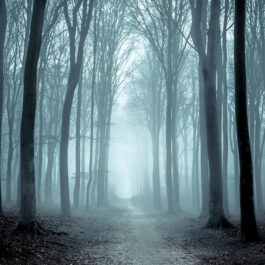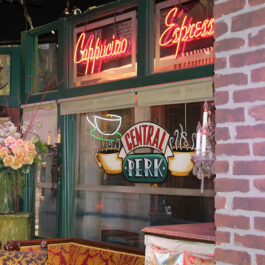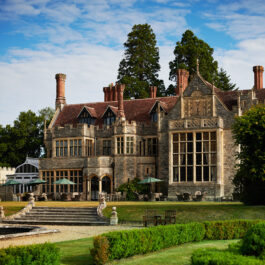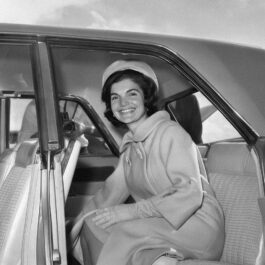Culture
Top 10 Movie Classics The Critics Hated
Top 10 Movie Classics The Critics HatedA director, cast and crew slave over their new passion project for months and then, what happens, a jaded critic dismisses it in just a few words…
By James Lee-Tullis
0/10
Culture
Top 10 Movie Classics The Critics Hated.
Apocalypse NowApocalypse Now – More charitable critics saw it as a flawed near-masterpiece, others as a bloated vanity project – alarmed by reports of a spiralling budget, chaotic shooting problems and a perceived clash of the egos between director Francis Ford Coppola and star Marlon Brando. Today, all that is cast aside, as critics and audience marvel at the film’s beguiling brilliance.
1/10
Culture
Top 10 Movie Classics The Critics Hated.
The Shawshank RedemptionThe Shawshank Redemption – Another prison escape film? You can almost understand why critics and audiences initially wrote the film off as just standard Hollywood fare. It took a small group of enlightened film fans and sustained word of mouth over some years before the universal appeal of this timeless human drama was fully recognised and acclaimed.
2/10
Culture
Top 10 Movie Classics The Critics Hated.
It's A Wonderful LifeIt’s A Wonderful Life – First released in 1946, the picture was scorned by critics and largely ignored by the cinema-going public. It wasn’t until the 1960s that its perceived weakness – a simplistic and unashamed sentimentality – began to be valued by television audiences, making it the much-cherished classic that it is today.
3/10
Culture
Top 10 Movie Classics The Critics Hated.
The Wizard of OzThe Wizard Of Oz – A blockbuster of its time with a massive budget of nearly US$3m, it only just recouped that budget on first release and it wasn’t until it moved to TV in 1956 that its iconic status was enshrined. Reviews for the film were mildly positive, but some critics were unsure about the bold use of Technicolor (now seen as a strength), while one unhappy scribe even wrote the film off as a “stinkeroo”!
4/10
Culture
Top 10 Movie Classics The Critics Hated.
Star WarsStar Wars – A long time ago in a galaxy far, far away… well, 1970s America actually, a small film called Star Wars from edgy, independent filmmaker George Lucas opened to unexpected acclaim and box office success. However, not all the critics were so convinced. Watch here to see Gene Siskel and Roger Ebert defending the original trilogy against eminent critic John Simon’s scathing criticism of the “malodorous” saga.
5/10
Culture
Top 10 Movie Classics The Critics Hated.
Annie HallAnnie Hall – Manhattan might be universally recognised as Woody Allen’s undisputed masterpiece, but poignant comedy-drama Annie Hall is a very close second and stands up well today with the sparkling wit and intelligence of its dialogue. However, Allen’s arthouse introspection was lamented by John Simon (again), who described the film as: “everything we never wanted to know about Woody’s sex life and were afraid he’d tell us anyway.”
6/10
Culture
Top 10 Movie Classics The Critics Hated.
UnforgivenUnforgiven – Clint Eastwood’s definitive anti-western confused a lot of critics when it came out. Perhaps distracted by the film legend’s previous western outings as actor and director, many overlooked the unremittingly honest approach of Unforgiven. Even the ever-constructive and much-missed film critic Roger Ebert was initially sceptical: “I gave it only two-and-a-half stars. I wasn’t thinking very well when I reviewed that…”
7/10
Culture
Top 10 Movie Classics The Critics Hated.
CasablancaCasablanca – There is little that hasn’t already been said about this true movie classic. Unsurprisingly, it opened to near universal praise with The New York Times describing it as “a picture which makes the spine tingle and the heart take a leap”. Surprisingly, however, The New Yorker could only muster that it was “pretty tolerable”. Bad day, perhaps?
8/10
Culture
Top 10 Movie Classics The Critics Hated.
The GraduateThe Graduate – Arguably the finest film from director Mike Nichols, the master of comedy-drama, The Graduate was one of the landmarks of 1960s cinema, earning box office success as well as critical acclaim. However, brilliant and hugely-influential critic Pauline Kael was far from convinced, labelling it as one of those “aesthetically trivial movies which… enter into the national bloodstream.”
9/10
Culture
Top 10 Movie Classics The Critics Hated.
The Godfather IIThe Godfather Part II – It was the first sequel to win the best picture Oscar and is a fixture on any Top 10 list of the greatest movies ever made. At the time, however, some critics seemed intent on finding fault in Coppola’s latest masterpiece. Vincent Canby writing in The New York Times sniffily ordained that the film “is not a sequel in any engaging way. It’s not really much of anything that can be easily defined… It’s a second movie made largely out of the bits and pieces of Mr. Puzo’s novel that didn’t fit into the first.“ Ouch.
10/10
















Sorry, the comment form is closed at this time.